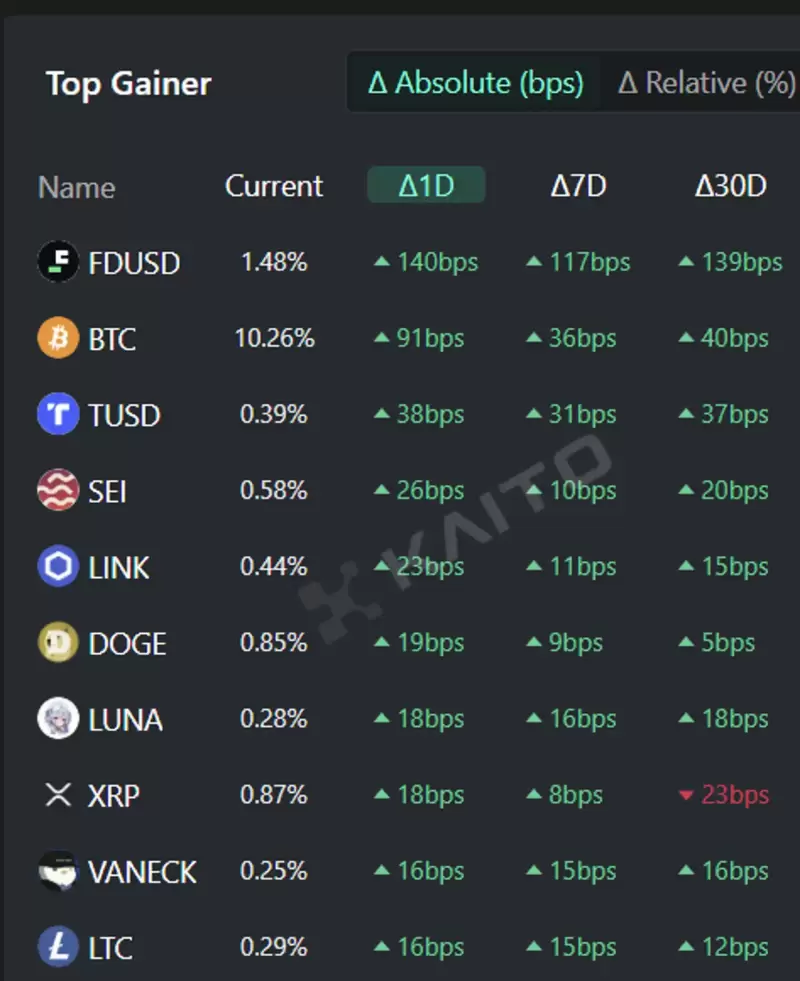 |
|
 |
|
 |
|
 |
|
 |
|
 |
|
 |
|
 |
|
 |
|
 |
|
 |
|
 |
|
 |
|
 |
|
 |
|
Cryptocurrency News Articles
Bitcoin Transaction Fees Hit Record Highs, Reflecting Escalating Block Space Demand
Apr 23, 2024 at 12:00 am
Bitcoin transaction fees have recently soared to an unprecedented $80 million, surpassing the previous record set in 2017. This surge in fees, which has driven average transaction costs to $128, has sparked debate regarding the relative demand for block space between Bitcoin and Ethereum networks.

Bitcoin Transaction Fees Surge to Record Highs, Signaling Increased Demand for Block Space
Bitcoin (BTC) miners are reaping the rewards of the recent halving, as transaction fees have skyrocketed to unprecedented levels. On April 20th, BTC fees reached a record high of over $80 million, eclipsing the previous peak set in 2017.
According to Lucas Outumuro, Head of Research at IntoTheBlock, the daily fee revenue of $80 million is approximately four times higher than the previous all-time high set in December 2017. The average BTC transaction fee stood at a staggering $128, dwarfing the $30 peak reached during the first Ordinals frenzy.
The surge in transaction fees has ignited a debate on the demand for block space between Ethereum (ETH) and Bitcoin networks. A pseudonymous crypto analyst pointed out that BTC's higher-than-normal average fees of $128 indicate that the Bitcoin network currently has more demand for block space than Ethereum.
"The average fee to send value on the Ethereum network is about $0.50 right now (single digits gwei). On the Bitcoin network, it's $20. That's a 40x difference in demand for BTC blockspace. Huge alpha there," the analyst stated.
However, it's important to note that the spike in BTC fees coincided with the launch of Runes Protocol, a new Bitcoin fungible token standard. Adriano Feria, another industry observer, downplayed Bitcoin's higher fees and attributed them to the shortcomings of the Lightning Network (LN) and the lack of viable alternatives.
"BTC's fees are still $20 because LN (Lightning Network) is garbage, and there are no other alternatives," Feria said.
Feria also highlighted that Ethereum's introduction of blobs has shifted demand to layer-2 (L2) solutions.
"Demand for transactions secured by ETH are at an ATH, but they are just shifting to L2s," Feria explained.
Despite these observations, other analysts and executives anticipate that Bitcoin transaction fees will continue to rise as Runes Protocol gains traction and BTC L2s heat up. Outumuro attributed the impact of Runes on BTC fees to its ability to generate high-fee transactions.
"24 hours after the halving, inflationary rewards have dropped by 50%, but transaction fees spiked 1,200% due to Runes. Miners made a record $100M+ in revenue on 4/20," Outumuro said.
Currently, Runes Protocol is dominated by memecoins. However, the upcoming Nakamoto upgrade to Stacks (STX), a Bitcoin layer-2 scaling solution, is expected to further fuel activity and fees on the network.
"Remember when we told you that Bitcoin fees will do a 500x? Yeah, we've been working on Bitcoin L2s for a reason. Happy halving, everyone! Next stop, Nakamoto," said Ali Muneeb, co-founder of Stacks.
Merlin Chain, another BTC L2, went live on April 19th and now leads in terms of Total Value Locked (TVL) according to DefiLlama data.
If the BTC L2 ecosystem reignites interest in the network, transaction fees could remain elevated. This surge in fees signals an increased demand for block space on the Bitcoin network and underscores the potential for further growth in the BTC L2 ecosystem.
Disclaimer:info@kdj.com
The information provided is not trading advice. kdj.com does not assume any responsibility for any investments made based on the information provided in this article. Cryptocurrencies are highly volatile and it is highly recommended that you invest with caution after thorough research!
If you believe that the content used on this website infringes your copyright, please contact us immediately (info@kdj.com) and we will delete it promptly.
-

- Ripple (XRP) Introduces Its RLUSD Stablecoin to the Stablecoin Market
- Apr 03, 2025 at 04:00 pm
- Ripple introduced its RLUSD stablecoin to the stablecoin market through its launch on Kraken cryptocurrency exchange. The USD-pegged stablecoin aims to boost its cross-border payment functions and integrate with the payment platform.
-

-

- Bitcoin (BTC) Price Consolidation May Be Precursor to a Market Drop, Analyst Says
- Apr 03, 2025 at 03:55 pm
- Bitcoin has seen a notable price consolidation over the past few weeks, trading between the $84,000 and $86,000 levels. Despite the initial surge in price, the cryptocurrency has faced a decline of 3.7% in the past week and nearly 10% in the past month, signaling a period of stagnation in its upward momentum.
-

- The OFFICIAL TRUMP price plummeted over 9% in the last 24 hours to trade at $9.29
- Apr 03, 2025 at 03:55 pm
- The drop in the TRUMP price comes after US President Donald Trump signed an executive order establishing reciprocal tariffs on trading partners and a 10% baseline tariff on all imports from all countries.
-

-

-

- FDUSD, BTC, TUSD, SEI, and LINK are the top 5 virtual asset-related keywords attracting the most interest
- Apr 03, 2025 at 03:45 pm
- According to the Token Mindshare (a metric quantifying the influence of specific tokens in the virtual asset market) top gainers from the AI-based Web3 search platform Kaito
-

-





























































